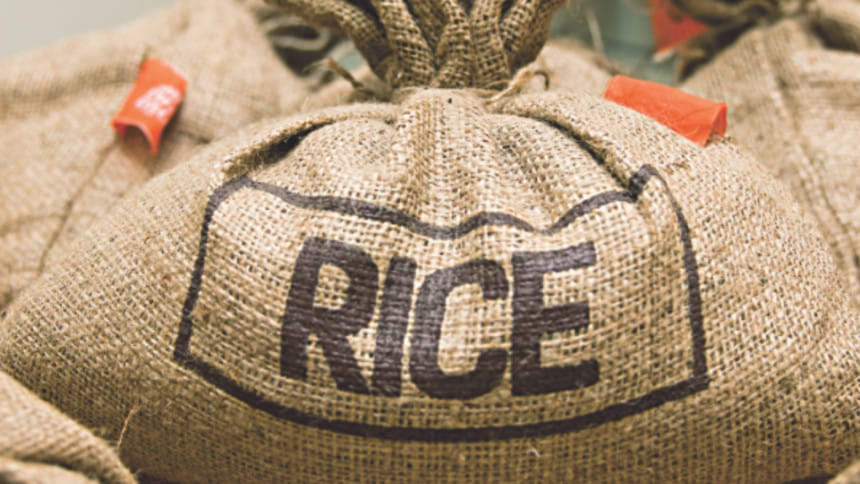Going Organic: Challenges and Possibilities

Our local cuisine is rich in diversity, history and in taste. However, the awareness regarding our food culture - in our country and around the world - is still relatively low. Putting Bangladeshi cuisine on the global culinary map will be a long journey indeed, involving myriad stakeholders, encompassing many activities. The first step towards it would be to actually understand our cuisine and have an appreciation of its uniqueness and richness. Read our article 'Food for Thought: Understanding Bangladeshi Cuisine' to get a quick overview about our food. Meanwhile, 'Of Imports and the Indigenous: Treasures of Bangladeshi Cuisine' talks about some of the delicacies which we have mastered and those which we can claim to be uniquely ours. And 'Culinary Campaigns: Promoting Bangladeshi Cuisine' is an article which provides ideas on how to promote our cuisine to locals and foreigners. On the other hand, keeping the global trend in mind, we have delved into the topic of eating organic, in our write-up, 'Gong Organic: Challenges and Possibilities'. From understanding what our cuisine is all about to identifying our treasures to promoting the cuisine to understanding organic food, The Daily Star, on its twenty-sixth anniversary, takes this opportunity to shed light on branding Bangladeshi cuisine.
When breaking down this big idea of beginning a new healthier lifestyle to more doable mini goals, many are considering going organic, meaning turning to food that lacks pesticides, artificial chemicals, hormones and antibiotics. While worldwide organic has become the buzz word for living healthy, and numerous scientific studies have confirmed the benefits of an organic diet and holistic health, the concepts also spark serious debate over issues like the availability, feasibility, genuineness and most importantly sustainability of organic food.
Organic food is a heavily regulated industry where the crops must be grown in an environmentally friendly way, using naturally maintained soil with no use of chemical fertilisers and pesticides. Organic livestock must have access to the outdoors and be given organic feed, and no antibiotics or growth hormones. Choosing organic food products can lead to increased intake of nutritionally desirable antioxidants and can reduce exposure to toxic heavy metals.
"Since our independence, even though significant progress has been noticed in nutritional and hunger indicators and in terms of food sufficiency, food stability remains a continuous challenge, especially amongst the poorest segments of the society," says Shykh Seraj, an eminent media personality and agriculture development activist. "The challenges are further intensified by climate change leaving both direct and indirect effects on agricultural production."

To tackle these continuing food security threats, the Government of Bangladesh has developed a number of high level policy initiatives including the 2021 universal food security goal. Tangled in balancing the many priorities and challenges regarding food sufficiency and food security, the question of the practicality of reliance on organic food, one that depends fully on natural elements as a production system for a larger population.
One of the advocates of organic food, Farida Akhter, the executive director of UBINIG, believes the practice of the unique farming of regeneration and having diversity in the production can help us achieve the 2021 vision.
The Nayakrishi Andolon, a biodiversity-based ecological agriculture movement run by them, believes that the farming practice must be able to regenerate the elements of the entire ecological system.
"In contrast to pesticide and chemical based industrial food production, Nayakrishi is 'organic' food production, as understood by food safety conscious consumers. However, Nayakrishi is not merely an 'organic' food source, but a specific practice that aims to maintain, and regenerate living and fertile soil, and diverse life forms and eco-systemic variability whilst developing the capacity of the indigenous knowledge system.
"Globally, there has been a rapid and radical transformation of food production system from farmer-based agricultural practices to an industrialised system based on the use of fossil fuels, chemicals, machines etc. Industrial factory model was imposed on agriculture, accelerating its demise in a very short period," she explains.
"The industrial food production has been supplying only limited number of food crops in the form of monoculture production with heavy applications of chemicals, fertilisers and pesticides. It lacks natural connection to the land. It believes in having an intensive cultivation for few mono-crops, at the cost of depleting the natural nutrients and minerals of the soil. It talks about having food self-sufficiency and increased production while losing food sources like lentils, pulses, fish and livestock.
In Bangladesh, our agro-ecological zone is very diverse. The kind of rice we can grow in Dinajpur, we cannot do the same in hill tracts. Instead of utilising the diversity that we have, pesticide and chemical based food production has drastically eroded the notion of agriculture and farming and established the corporate control of global food production."
According to Farida, people who believe in biodiversity based farming, encourage taking holistic approach of the interdependence of crop-livestock-poultry-fish and horticulture and how they complement each other's needs.
"GMOs are not an answer to future food production but a serious threat to not only our future agriculture, but also our well-being. We need to look deeply into the question of how to survive in the future having all forms of life in the environment around us, not only human beings," Farida added.
This organic renaissance might not come easy, but it is very much attainable believes Farida. "Most importantly, our consumers need to be educated and aware of the many health benefits that organic food can have on us. Once we have the demand of having biodiversity based, eco-friendly crops, we can surely hope for fully depending on 'organic' food production."
While opting for organic food, is surely a healthier choice to make, for Bangladesh, it is never easy, given the amount of arable land we are left with to feed the ever growing population we have, believes Shahidul Rashid Bhuiya, Professor, Genetics and Plant Breeding, Sher-e-Bangla Krishi University.
According to him, a fraction of urban people are choosing organically grown food because they find it "safe" meaning free of harmful chemicals and bursting with more nutrition and sustainable sustenance. But this safety comes with a higher price tag that can make many families reconsider, in fact often twice as high as conventionally produced food.

Unlike conventional farming, organic farming is often done on a smaller scale under stricter regulations and requires a labour and management intensive procedure. Not only their availability in a few trusted outlets is a concern, but also fraudulent greenwashing activities-meaning the company attempts to go eco-friendly maintaining organic terms and traits, when in reality the production process violates the strict organic standards. This, itself, is a major concern.
"Right now these urban niche consumers mostly belong to the affluent part of the society with access to technology for available knowledge about sources of organic produces, who prioritise the organoleptic characteristics, health and environmental concern.
This fraction cannot represent the entire food scenario of the country where our principal goal is to achieve food security for everyone. Also there is a risk for fraudulent labelling with organic food making the consumer sceptical about the item's genuineness," Shahidul Rashid Bhuiya says.
Talking about having the sustainability of organic food in near future while implementing high level policy initiatives including vision 2021, he says, "In spite of the recent worldwide dynamic organic market development, the ratio of organic products in the total consumption in Bangladesh remains less than one percent. Since our independence, food security issues have been one of the highest priorities on the government's agenda. With the number of demographic and ecological challenges, we need to diversify our agriculture to tackle the continuing food security threats in the coming years. There is no doubt about the nutritious and ecological value of organic food, but excluding GMO in the process and depending solely on organic for mass production is also not the solution," he concludes.

"From my experience of working closely with farmers around the country, growing organic food for mass population does not seem viable to me," comments Shykh Seraj. The definition of 'organic' is itself very complex. For example, if I do not use chemical fertilisers and pesticides, but my farming contaminates the water source near my land, I am not quite following the organic standard. We also need to consider our limited resources against the number of food related challenges that we face. To work simultaneously on both food sufficiency and climate change issues, we can think of alternative ways. For example, to revive soil fertility, we need to use a lot of organic fertilisers. Production and extension of vermicomposting is moving onward pretty fast and we can work on that."
Bangladeshi arable lands have gradually lost 85 percent of fertility. According to SRDI, soil lacks both organic matters and nutrients. Out of 8.3 million hectares of arable land in the country, nutrients have decreased alarmingly in 3.3 million hectares of lands. The main reason behind this is the decreasing organic matter from soil, he mentions.
"When saving the soil's fertility and producing crops without pesticides are the most important issues, we need an integrated venture to spread the organic fertiliser across the country. Even for pest control, we can take up natural remedies that many other countries follow and train our farmers to do so. Also, we need to remember how much pesticide and fertilisers we are putting. It's great news that farmers are becoming aware of producing fresh agricultural products while maintaining soil fertility."
Most importantly, we need to work in an integrated way to protect the environment while yielding good results and revenue. In this respect, it is necessary to evolve further research that would explore how we can diversify our export basket with organic products and also the possibilities and challenges of boosting organic food production in Bangladesh.
The writer is a reporter at The Star Weekend and can be contacted at [email protected]

 For all latest news, follow The Daily Star's Google News channel.
For all latest news, follow The Daily Star's Google News channel. 



Comments